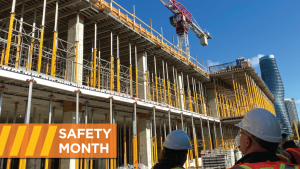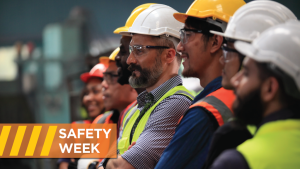Construction contractors must take definitive steps to ensure they’ve done enough due diligence to mitigate any liability flowing from an incident or injury resulting from a worker who is impaired by marijuana, says leading health and safety lawyer Norm Keith.
“With the change in the law regarding cannabis it is going to be treated as commonplace and that’s a problem,” says Keith of Fasken Martineau in Toronto. “They should immediately get advice on how they are going to handle this going forward.”
He says the issue of whether a carrier will refuse coverage based on a lack of due diligence is more of an issue in the litigious United States than in Canada where there’s a no-fault Workplace Safety and Insurance Board (WSIB). Still, he says, contractors don’t want to put themselves in a place where they might be held liable for incidents, injuries or fatalities on the jobsite.
“We saw from the Court of Appeal in the Metron case, they increased the fine because the company did not do enough to prevent the workers from smoking pot on the job,” he says, referring to the swing stage collapse that occurred on Christmas Eve 2009 where four workers were killed and a fifth badly hurt.
Metron, the contractor, was initially fined $200,000 but the Court of Appeal bumped it to $750,000 because the workers had levels of marijuana in their system consistent with recent consumption.
With that in mind, he says, contractors should immediately issue clear guidelines underlining a zero tolerance for cannabis consumption or risk assuming liability.
“Don’t even try and get into levels because that’s not worth it,” he says. “They have to make it clear that in doing their due diligence they are setting a zero tolerance limit. And they must make it clear they will test for drugs in certain circumstances.”
While the law does not allow random testing generally — with some exceptions that construction doesn’t fall under — there is a Supreme Court of Canada ruling involving Irving Pulp and Paper that sets three cases for drug testing.
Those conditions are: following an incident or injury on site; when an employee has been to rehab for a known drug problem and has returned to work; and when there is reasonable cause.
The last is the biggest hurdle, he says, because even if a worker returns to the site from lunch glassy eyed and smelling of marijuana, they may just lie.
“Unlike police, who only need a reasonable suspicion to demand a drug test for stoned drivers, having a reasonable cause is a little different,” Keith says. “Police officers also have specific training to spot impaired drivers. At the construction site you’d have to get corroborating testimony from someone who was at lunch with them.”
The change in the law Oct. 17 will continue to have ripple effects through workplaces, he says, especially construction sites.
“Construction employers, however, must be prepared to do the testing if the circumstances meet the conditions set down by the Supreme Court of Canada,” he says. “There’s a reluctance because it can be expensive, it might upset the workers and cause a confrontation, or it might trigger a union grievance. But they wouldn’t stop at investing in better safety equipment or training and they shouldn’t stop investing in testing because of the cost.”
Under the Ontario Occupational Health and Safety Act only three industries, mining, offshore oil and gas and commercial diving specifically ban employees from bringing drugs to work or being under the influence.
The recent strategy by the TTC to randomly drug test workers has been allowed thus far because the courts see it as a public safety issue, he says, but the union is pursuing a challenge to a higher court.
“It’s an anomaly and we’ll have to see how it plays out,” he says. “But the change to cannabis laws may actually push this along because it is a big change.”
Keith says he was at a recent conference and Swedish delegates were curious about how Canada is handling the shift.
“Even though Sweden is a liberal and socialist-type country, much like Canada, northern and resource based, there was serious doubt about whether they would follow us and decriminalize cannabis,” he says. “Safety was one of the issues. That and the issue of the effect on the brains of young people under 25 years old.”









Recent Comments
comments for this post are closed